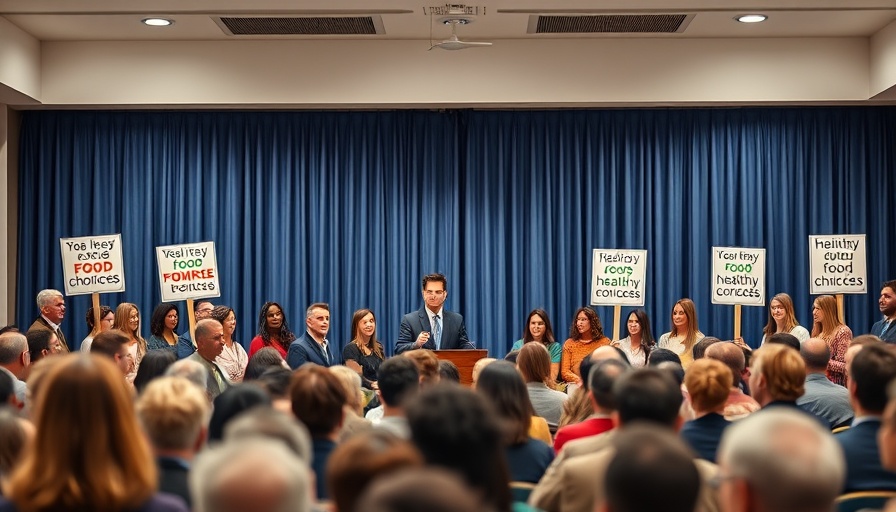
RFK Jr.'s Bold Stance: Sugar as Poison
In a provocative announcement, Health Secretary Robert F. Kennedy Jr. has recently taken a firm stand against controversial food additives, declaring that “sugar is poison” while leading the charge to eliminate petroleum-based food colorings from consumer products. This stance comes as part of an extensive reform initiative aimed at transforming the food industry, notoriously linked to rising obesity rates and associated health conditions such as diabetes and heart disease.
The Implications of Food Coloring and Sugar in Our Diets
Kennedy's comments during a press conference highlight the potential dangers of artificial ingredients that consumers often remain unaware of. Sugar, a staple in many processed foods, has drawn scrutiny over its contribution to various health issues. Numerous studies have linked excessive sugar consumption to not just obesity but also to a range of metabolic conditions. Kennedy’s proposals signal a stark warning about what might lay ahead for food industry practices.
What the Food Industry Has to Say
At the announcement, no representatives from the food industry were present, indicating a possible divide between health policymakers and food manufacturers. Nonetheless, the International Dairy Foods Association has shown some willingness to remove artificial colors in school lunch programs by 2026, a small but significant step forward. While Kennedy asserts that key food manufacturers have contacted his agency for guidance, the industry's silence on his larger claims raises questions about the practicality and real impact of these proposed changes.
The Path Ahead: Future Trends and Consumer Health
As the desire for healthier eating continues to grow among the public, Kennedy’s advocacy echoes a larger trend towards clean eating. Reports indicate that consumers are increasingly reading food labels and gravitating towards products devoid of artificial ingredients. This movement could usher in a new era where manufacturers prioritize consumers' health concerns, potentially leading to innovations in how foods are produced and marketed.
Potential Pushback: Counterarguments to the Proposed Ban
Opponents of Kennedy’s position may argue about the potential economic implications of such sweeping reforms. The food industry represents a massive sector of the economy. Critics contend that imposing strict regulations on sugar and food dyes could lead to higher costs for producers and consumers alike. Additionally, the practicality of such mandates might create resistance from food companies that argue that consumers still prefer sweetened products, regardless of their potential health consequences.
Community Responses and Local Impacts
The response from the public and local communities has been mixed. While many advocate for healthier food options free from harmful additives, others are concerned about governmental overreach into personal dietary choices. The emotional divide tends to reflect broader sentiments about freedom of choice versus public health, creating a hotbed for debate and dialogue as more Americans become engaged in health advocacy.
Your Role as a Consumer and Citizen
Given the heightened attention on the impact of food choices on health, consumers are in a unique position. Engaging with these conversations and voicing opinions around food labeling could influence policy decisions. By choosing to demand transparency in food manufacturing, individuals can fuel change from the ground up, encouraging a shift in industry practices.
What's Next for Food Policy?
With the timeline set for manufacturers to eliminate harmful colors and reconsider sugar's role in food products, significant scrutiny will be placed on how effectively these policies can be nationwide. Kennedy predicts that within four years, consumers will see marked changes on supermarket shelves—a claim that will be closely watched.
As U.S. citizens engage with these evolving health discussions, it becomes crucial to stay updated with health news in America. Keeping informed about government measures, evolving food policies, and nutritional guidelines will empower consumers to make enlightened choices, ultimately contributing to long-term health improvements across the nation.
With this reform initiative, Kennedy is not just addressing immediate health concerns but is also pushing for a cultural shift toward food integrity, suggesting that every bite matters.
 Add Element
Add Element  Add Row
Add Row 



 Add Row
Add Row  Add
Add 


Write A Comment